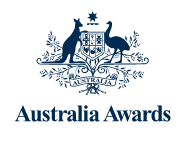Research your new home and think about where you want to live
Australia covers 7.7 million square kilometers and is a land of extremes. Educational institutions are spread across the country, in all of Australia’s six states (New South Wales, Victoria, Queensland, South Australia, Western Australia and Tasmania) and two territories (the Australian Capital Territory and the Northern Territory). Some universities, such as the University of Melbourne, are in big cities. Others, such as Charles Sturt University in Bathurst, are in smaller regional centres.
Accommodation can be one of the biggest challenges faced by awardees. When researching to come to Australia, start looking at options for accommodation and develop a plan to find a place to live. We recommend you start researching and looking for accommodation before you leave home. Your educational institution will arrange temporary accommodation for you when you first arrive, but you will need to find for a more permanent place to stay for the duration of your course.
The cost of living and availability of rental accommodation varies greatly between regions. In some places, such as Sydney and Darwin, there is high demand and finding private accommodation can be challenging. There are plenty of housing types to choose from, including on-campus, home-stay and private rentals, but they fill up quickly. Think about factors including cost, location, transport and safety, as well as access to services such as banking and medical services, and availability of part-time jobs. The Department of Home Affairs booklet Life in Australia has essential information on services, public transport and accommodation for each state and territory.
You can also check with your institution to see if they have accommodation support services and find out which suburbs or areas are nearby and recommended for students. Having a good understanding of accommodation options, quality, location and cost, will make it much easier and less stressful when you arrive.
If you are on your own, the simplest, safest and most convenient option is on-campus accommodation. Staying in a residential college saves you time and money on transport, and also protects you from the expense and uncertainties of the rental property market. On-campus accommodation can run out fast, and is not guaranteed for any student, so be sure to register as soon as possible before you leave for Australia. Register with your institution, or ask your Student Contact Officer for help.
You may also consider home-stay accommodation—boarding with a local family in their home—or sharing accommodation with other students. In a home-stay arrangement, the house is usually furnished and you only need to furnish your own room. Contact the student accommodation unit at your institution for more details. Many institutions have this information on their website.
If your family is joining you in Australia, renting a private house or flat will be your best accommodation option. However, available rental properties can be limited across all Australian capitals, and the cost of rent can be high. Websites that provide useful information on available rental properties include:
If you think on-campus accommodation is the best option for you, you should register with your institution early and contact them before leaving home.
Thinking about bringing your family?
We strongly encourage you not to bring your family to Australia in your first six months of study, and instead wait until you’re established and in long-term accommodation. Your first semester of study will be busy and demanding, and you will need to focus to ensure you settle into your study routine. While the support of family is important, many scholars find the extra costs very hard to manage, especially while they are trying to settle in. Family of awardees seeking to travel to Australia must lodge a Student visa application (subclass 500) (subsequent entrant) with a letter of no objection from DFAT.
Important documents to bring
There is a range of important documents that you should consider bringing with you to Australia. Carry photocopies of these documents in case you lose them. Important documents that might be useful to you, and your family if they join you in Australia, include:
- your ticket, passport and travel itinerary;
- driver’s license if you have one;
- your letter of offer from DFAT, as well as any other documents that are listed in your letter of offer;
- your medical history and, if you are traveling with medication, a letter from your doctor and copies of your prescriptions if you are travelling with medication; and
- birth certificates, your marriage certificate, academic records, job references, and property rental references.
Quarantine
Australia has strict quarantine laws to protect its native plants, animals and agriculture against pests and diseases. When you arrive in Australia, you must declare all food, plant and animal material. Many of these are banned from Australia. If you are carrying food or plant items, declare them even if you think they are allowed. It is better to be safe than sorry! Airline staff will give you an incoming passenger card, which you must use to declare items. If you don’t declare items, you could be given an on-the-spot penalty or face prosecution.
You should also declare other items as requested on the incoming passenger card, including medicines and large amounts of cash in foreign currency. You can bring up to three months’ worth of prescribed medicine with you, but must keep it in the original packaging, declare it when you arrive and bring your prescription to prove the medicine is yours. You should also check that the medicine is allowed into Australia — you can find a list of restricted medicine at the Office of Chemical Safety or the Therapeutic Goods Administration. You are not allowed to bring in prescribed medicine for family members.
There are also strict limits on the number of cigarettes and the amount of alcohol you can bring into Australia.
Restrictions on materials coming to Australia also apply to items received through the mail. There have been many cases of prohibited goods, such as spices or seeds, being mailed to overseas students studying in Australia. Warn your family and friends not to send you food or other plant and animal products. All parcels entering Australia are checked for illegal items and heavy fines can apply to prohibited items. But don’t worry about getting hold of your favorite food – Australia is a multicultural society with many Vietnamese residents, and you will be easily able to buy almost any food or ingredients that you want.
Never carry illicit drugs. Penalties for drug offences in Australia are severe and could result in a jail term.
Check out these websites to learn more about Australia before you arrive
- The Australia Awards Scholarships webpage has lots of useful information including the Scholarships Policy Handbook that outlines your contractual obligations.
- Study in Australia provides information for international students on living and studying in Australia.
- The Department of Home Affairs provides essential information on local services, public transport and accommodation for each state and territory.
- Australia’s national broadcaster, the ABC, has up-to-the minute national and local news and weather, as well as an Australian perspective on international events.
- The Australian Bureau of Statistics – Australia’s national statistical agency – has statistics, information and services on economic, social and environmental matters as well as information on Australia’s geography and climate, the environment, government, international relations, defense, education, and our health and welfare systems.
- The Australian Bureau of Meteorology provides weather forecasts and weather warnings for all locations in Australia.
- Google maps will help you pinpoint your new city or town, locations and addresses.
- The Department of Agriculture manages quarantine controls at Australia’s borders and provides information on what you can and can’t bring into Australia. Visit The Australian Border Force manages Australia’s border security and detects and deters unlawful movement of goods and people across the border.



